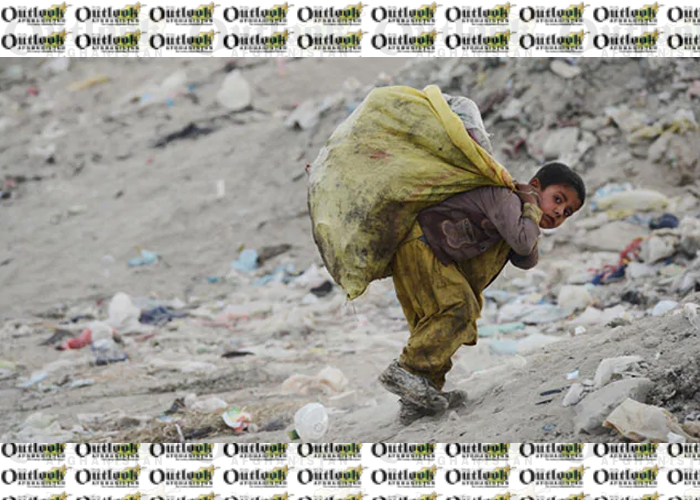Afghanistan is an agricultural country by tradition and the social life of the people of Afghanistan is simply related to their culture and resources. The resource at the disposal and discovered up to now have not been mobilized and used fie to continued civil war and insurgency in the country.
The problem with Afghanistan is that some of which are very costly have either not been discovered or not been fully utilized. Although, Afghanistan is a rich country in terms of Gold, silver, copper, iron, metals, torques but these resources require huge investments to be utilized. As a result, it requires a very encouraging and motivating investment policy by the government to provide incentives to both national and international investors to investin Afghanistan natural resources.
There are three sources of man while living as a member of society. Time, money and labor are great sources at our disposal. Time is the time of life and age which is not fully utilized because our culture is not industrial and most of us are not trained in technology of using resources available in our country.
Our educated human resources are in search of jobs in foreign countries and they are leaving Afghanistan both due to lack of job opportunities and insecurity. This has given an idea “that Afghan society is not able to absorb technical skill due to lack of technical resources with us”. Our culture is traditional and requires manual labor more than technical one. These all have led to decide that Afghan society is poor and is not able to cover up the needs of the nation within the country.
Now, the question we shall answer is why we are a poor nation, though we have numerous natural resources and very gifted talents?
To answer this question, one must look closely at political and economic factors in play in Afghanistan. Political causes have deep roots in the weakness of the state’s capacity to establish legitimacy and consolidate political power. Therefore, corruption continues to spread within its own bureaucratic apparatus as well as in the society at large. Bribery, nepotism, and racial discrimination are among the most prevalent forms of corruption within the Afghan government institutions and they have almost paralyzed thebureaucratic apparatus of the country. This subsequently reduces the state’s authority and capability to design and implement poverty alleviating policies effectively. It also limits government’s ability to cooperate with, support, and at the same time, hold international aid agencies accountable while executing short and long-term development programs. Further, the poverty reduction policies of Afghanistan have not been based on a social equality paradigm; ethnic and regional interests have preceded social equality in these policies either in their content or the way they have been implemented.
Moreover, economic frailty, and dependency of the government on foreign aid hinders state’s ability to address the issue of poverty in an effective manner. Lack of adequate economic power leads to state’s inability to employ and train sufficient civil service, military and police force to implement the law, defend the right of the poor, and end war-lords’ claim to authority. This means that the Afghan government has not yet achieved the political and economic capacity to create the conditions necessary to implement successful anti-poverty policies.
To do so, the government has to control institutional fraud by providing higher wages and benefits to its employees, and taking more unyielding disciplinary actions against those who do not abide by the law. Nepotism, bribery, embezzlement, and racial discrimination are among the bureaucratic ills that severely affect the ability of the state to provide basic social and economic services to the public, and particularly to the poor.
Corruption has jeopardized the state’s ability of Afghanistan to cooperate with, and monitor international aid agencies. As a result, in the absence of the government’s support, and guidance, the participants in economic reconstruction of Afghanistan would continue to face major impediments to coordinate efforts while trying to reach those struggling in destitute.
If Afghanistan wants to achieve any substantial gains in its quest for eradicating poverty, the formation of an empowered state with the economic capacity to provide basic social services such as health, education, and employment opportunity is an absolute necessity for the country. Therefore, the question is how could the government augment its economic power in order to fight corruption, and help the poor to rise above poverty line? One of the main venues through which a government is able to generate revenue is to collect sales, payroll and property taxes. Unfortunately, the Afghan state has limited institutional and technological capacity to do so. In the absence of sufficient military power, the state’s authority is limited in collecting taxes from small business, property owners, and producers of agricultural products.
In another words, economically Afghanistan remains fragile because it has insufficient capacity to generate budgetary revenue. Consequently, the government is unable to offer competitive salaries to its own employees, and afford sufficient controlling and or guiding measures for the overall growth and direction of the economy. Poverty is one of the main social issues in Afghanistan. Although, Afghanistan a country with different natural resources, it suffers heavily from poverty due to lack of utilizing its resources. One of the main causes of poverty in Afghanistan is weak state, a condition that it is not able to utilize its resources. In addition, wide spread corruption has paralyzed the government system and most of the revenues of the goes to the pockets of the civil servants due to weak check and control systems and corrupt practices in collecting taxes from small business, property owners, and manufactureres.
Home » Opinion » Why We Are a Poor Nation
Why We Are a Poor Nation
| Mohd. Sakhi Rezaie

